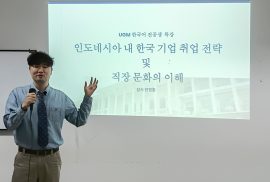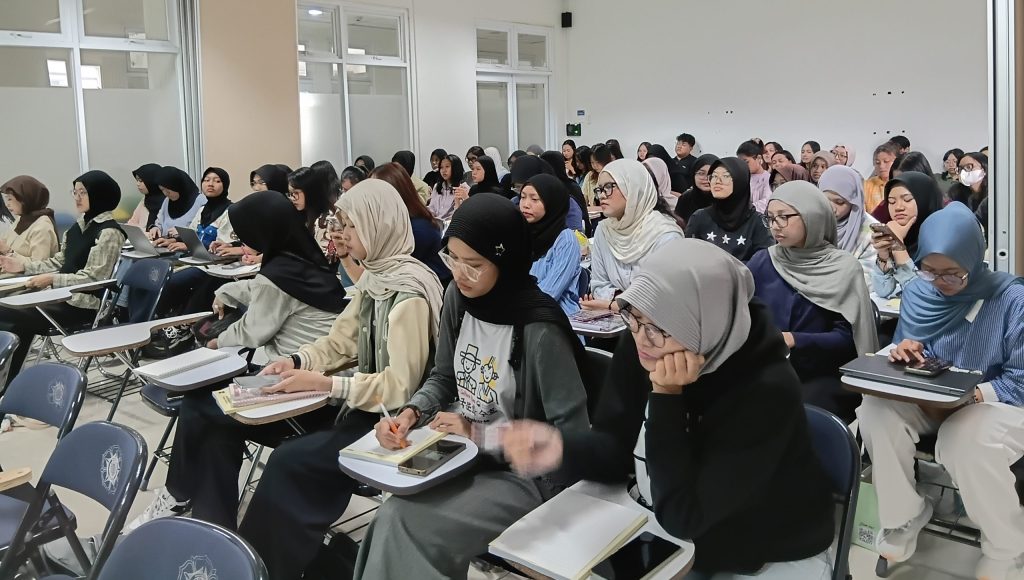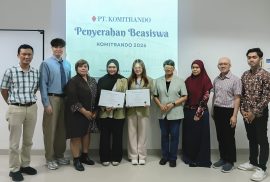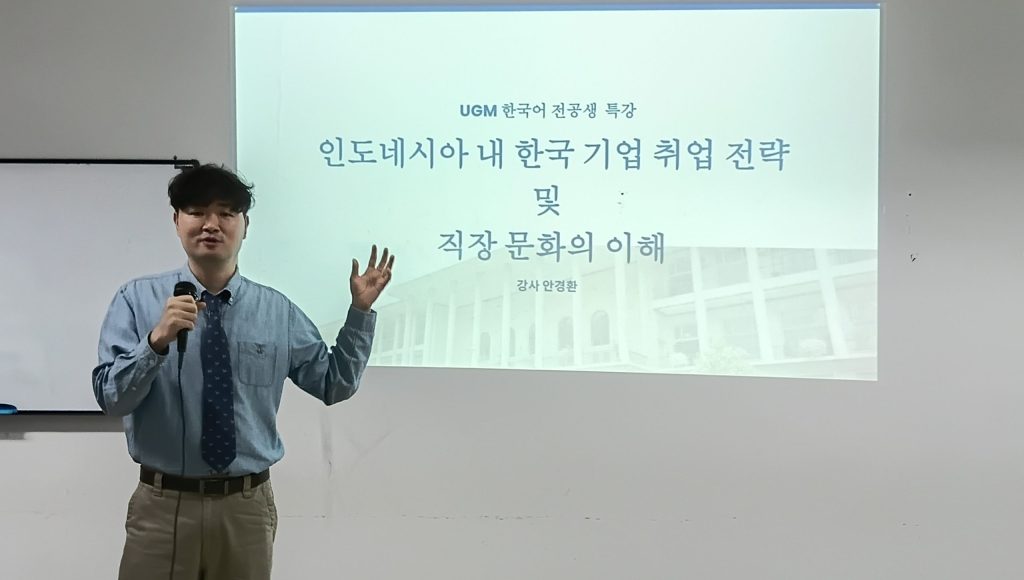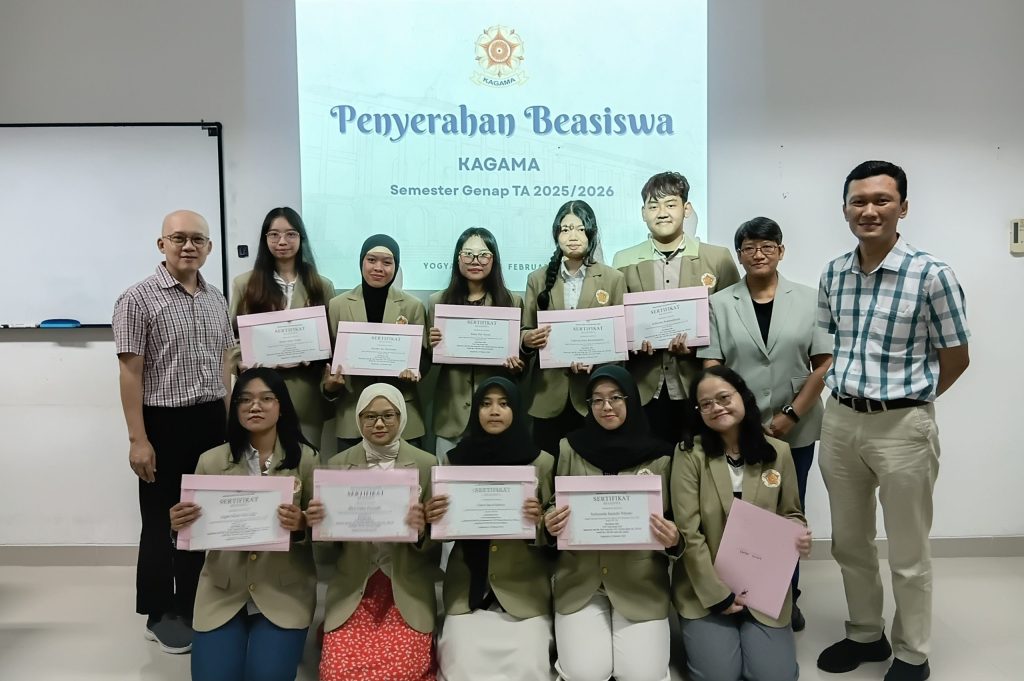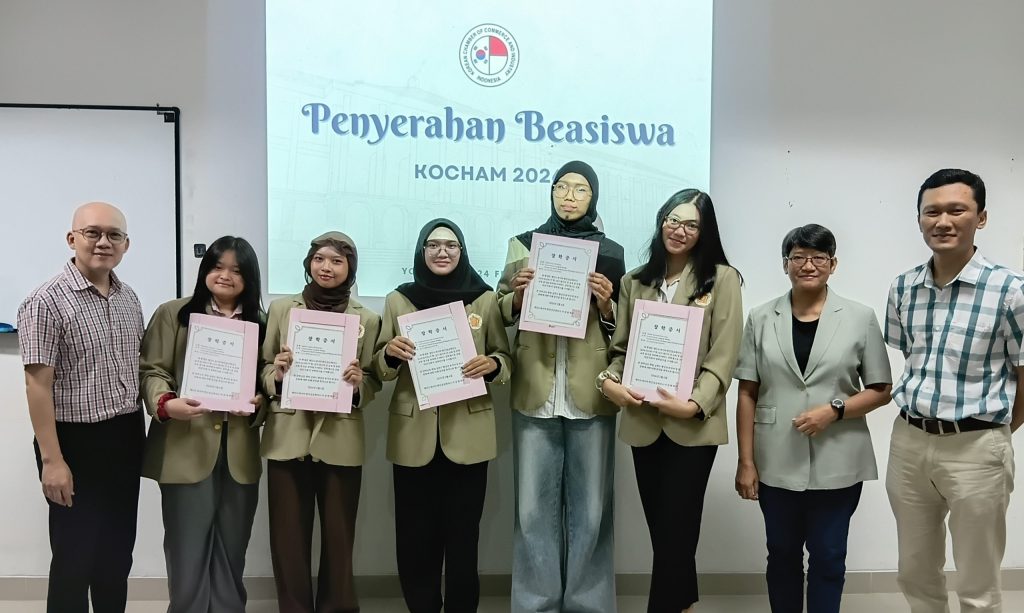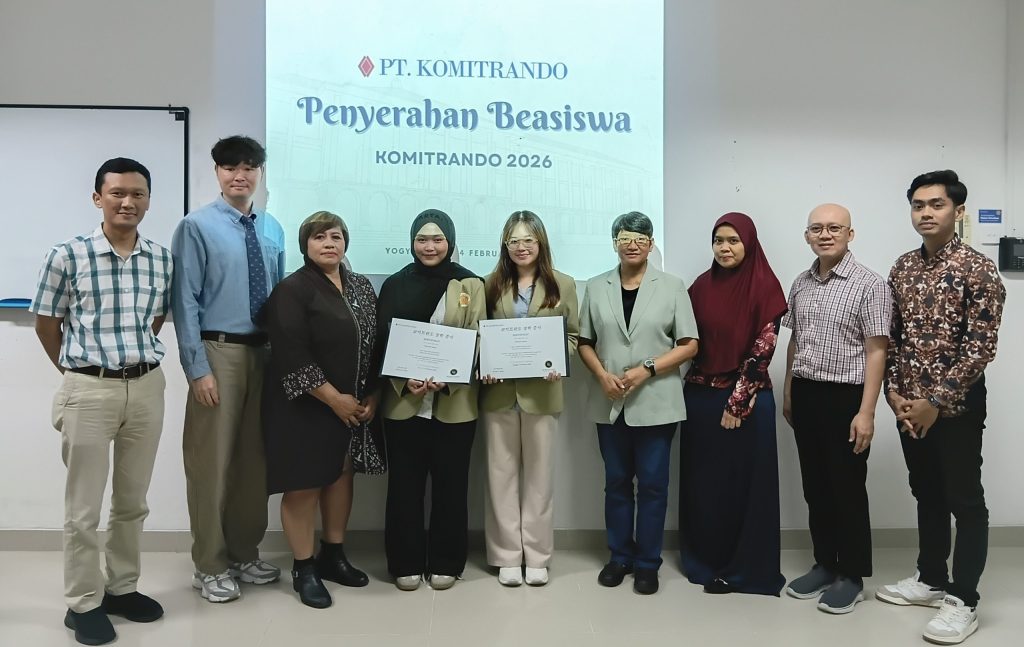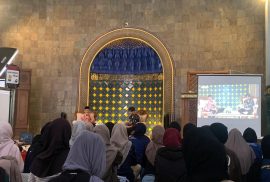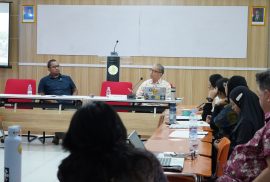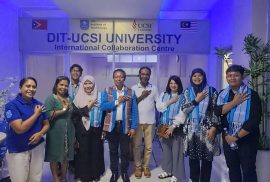Yogyakarta, 24 February 2026 – The Korean Language and Culture Study Program, Faculty of Cultural Sciences, Universitas Gadjah Mada held a public lecture on Tuesday, 24 February 2026. The event took place following the scholarship award ceremony and was conducted alongside the Academic Korean Language class.
The lecture was delivered by Mr. Ahn Gyeong Hwan, Operations Director of PT. Komitrando. On this occasion, he presented a session titled Work Strategies in Korean Companies in Indonesia and Understanding Workplace Culture, which explored career opportunities in Korean companies, required qualifications, and the dynamics of Korean work culture (K-Work Culture).
Mr. Ahn explained that Indonesia–Korea cooperation is currently entering an increasingly strategic phase, marked by expanding collaboration across various sectors, from manufacturing to finance and information technology. He emphasized that in a professional context, language can be understood as a “tool” that facilitates work processes. While tasks may still be completed without such a tool, possessing the right tool—in this case, Korean language proficiency—makes work more effective, efficient, and value-added.
He further outlined the profile sought by Korean companies: individuals who can serve as a “bridge,” demonstrate strong business communication skills, understand hierarchy and workplace ethics within Korean corporate culture, and exhibit responsibility and teamwork.
In the concluding session, Mr. Ahn shared practical tips on CV preparation, writing a motivation letter, and strategies for job interviews. Students followed the lecture attentively, reflecting strong interest in career opportunities within Korean companies.
Through this public lecture, students gained not only a broader understanding of employment opportunities in Korean companies but also more concrete insight into industry expectations for graduates of Korean Language and Culture. The session is expected to broaden students’ perspectives on career readiness, strengthen awareness of the importance of applicable language competence in business contexts, and encourage continuous professional development. The event thus represents a strategic step in bridging academia and the professional world.
Author: Eunike Serafia N.S

